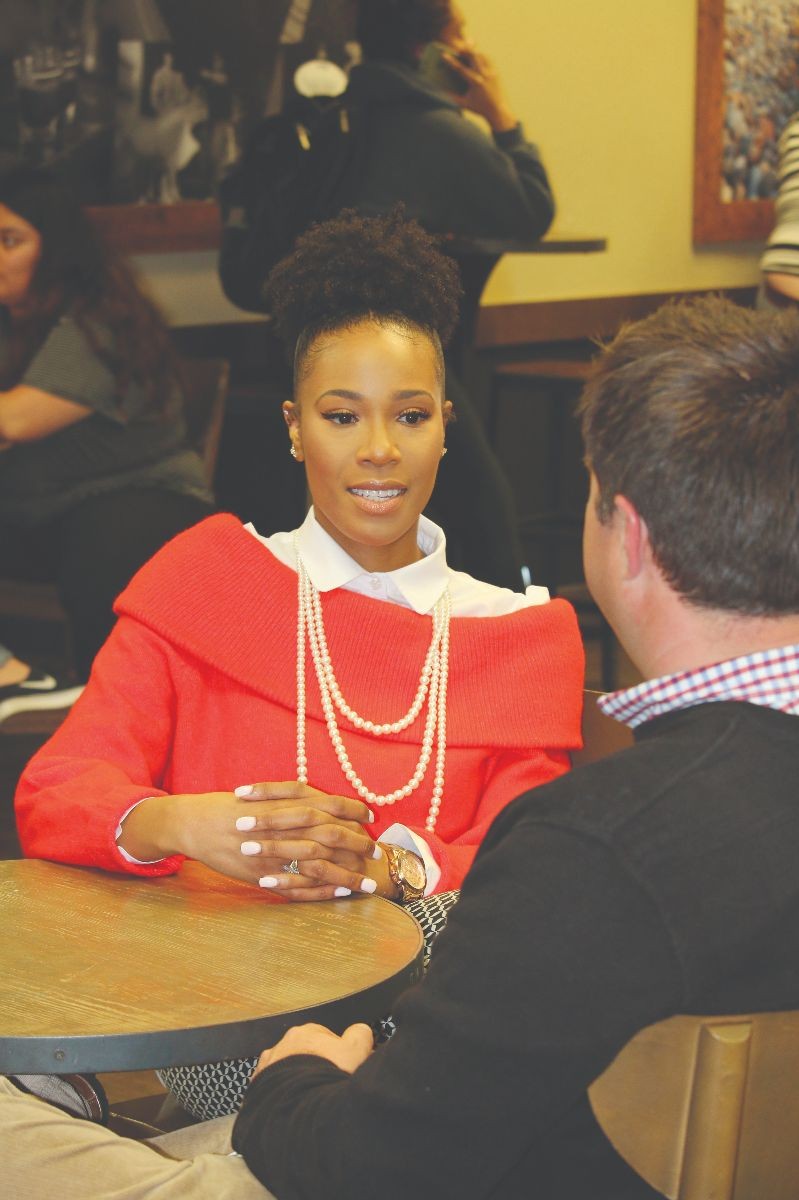CSUMB Magazine
Building Bridges
Compiling, communicating campus crime statistics requires a collaborative effort
The Jeanne Clery Act requires campuses nationwide to keep and disclose accurate information about crimes that happen on or near their campuses.
So, Shanieka Jones, who is in charge of Clery compliance at Cal State Monterey Bay, knows that the numbers are important. Perhaps even more important are the relationships she maintains across campus.
I cherish the time I am able to spend with students.— Shanieka Jones
“You have to be personable. I think any employer wants that. But I have found with Clery, that it carries with it this huge weight. And if you constantly find yourself saying: ‘But we could get fined,’ or if you are always telling departments what they are doing wrong, you are burning bridges before you can build them,” Jones said.
In the wake of high-profile sexual misconduct cases that have roiled campuses such as Michigan State and Penn State – as well as fines issued by the U.S. Department of Education to campuses found not to be in compliance with Clery – universities are making renewed efforts to be certain they are abiding by the letter of this decades-old federal mandate.
Providing important information
Not surprisingly, Jones is a strong believer in the importance of the law, which requires campuses both to make annual reports of crime statistics and to issue timely warnings to the campus when criminal activity occurs.
“It allows prospective students and employees to make an educated decision on whether or not they consider that campus safe and whether they would want to attend or work there,” Jones said.
“The other side of it is that I think it helps build bridges to departments that might never talk to each other otherwise.”
When CSUMB was looking for a Clery Act and crime prevention coordinator in 2014, it didn’t take long for the hiring committee to decide they had found the right person in Jones.
“We conducted a video interview with Shanieka and right away it became obvious that she had a strong understanding of Clery and the challenges of campus compliance,” said CSUMB Police Chief Earl Lawson.
“The entire interview panel was impressed with her professionalism, charisma and articulate answers to the panel’s questions. Before we even ended the interview, panel members had whispered among themselves and slipped me a note encouraging me to invite her to visit CSUMB.
“Sometimes you just know you’ve found the right person.”

An HBCU graduate
Jones grew up in a close-knit family on Long Island, and, when it came time to go to college, moved to Virginia to live with her grandparents.
Her grandfather, who had retired from the Nassau County (N.Y.) Police Department, had his own idea of where Jones should further her education.
“He had some personal views on race relations, having grown up as a black man in the south, and he said, “If I am going to help pay for your school, you are going to go to a HBCU (historically black college),’’ Jones said. “First I resisted. Then he and I sat down and had a serious conversation, and I said I would give it a try, and I ended up falling in love with it.”
She attended Virginia State University, where she earned both a bachelor’s and a master’s degree in criminal justice.
“Being introduced to my culture in a whole new way, it allowed me to learn who I am as a black American,” Jones said.
Into law enforcement
She took her first law enforcement related job as a parking manager and then records manager at Virginia State. One day she ran into the campus police chief who was heading for a meeting and he asked her to join him. It was about the Clery Act.
“I left saying, ‘What in the world is this? And whatever it is, I don’t think we are doing it right,’” Jones said.
She oversaw Clery Act compliance at Virginia State for three years.
Right away it became obvious that she had a strong understanding of Clery and the challenges of campus compliance.— CSUMB Police Chief Earl Lawson
“Slowly but surely, Clery became me. I guess I had a knack for it. I have kind of a type A personality, being able to organize things, and read things, to the letter.”
She then began checking for other jobs in the field, and came upon the announcement of the position at CSUMB.
Moving to Student Affairs
In 2017, the CSU mandated that all of its campuses have a full-time Clery compliance director, and that the position be independent from the campus police department, to avoid potential conflicts of interest.
Jones now reports to Student Affairs and has moved away from her crime prevention responsibilities, which had her giving presentations to a wide range of administrative, faculty and student groups around campus.
“That satisfied my personal passion. I am really big on community policing, community outreach, community service in general,” Jones said. “I cherish the time I am able to spend with students. Even in this position, I have maintained my role as the adviser to the Black Students United on campus.”
Still, she is happy with her current role.
“I for one am extremely grateful to university administration. I have not felt any resistance to anything I have proposed. Even when I am presenting the numbers to cabinet, I never get responses that make me wonder why I do what I do. The response is: ‘Here are the numbers. How are we using these to educate, to program?’’’
“As long as I am getting that response, I know that CSUMB’s heart is in the right place.”